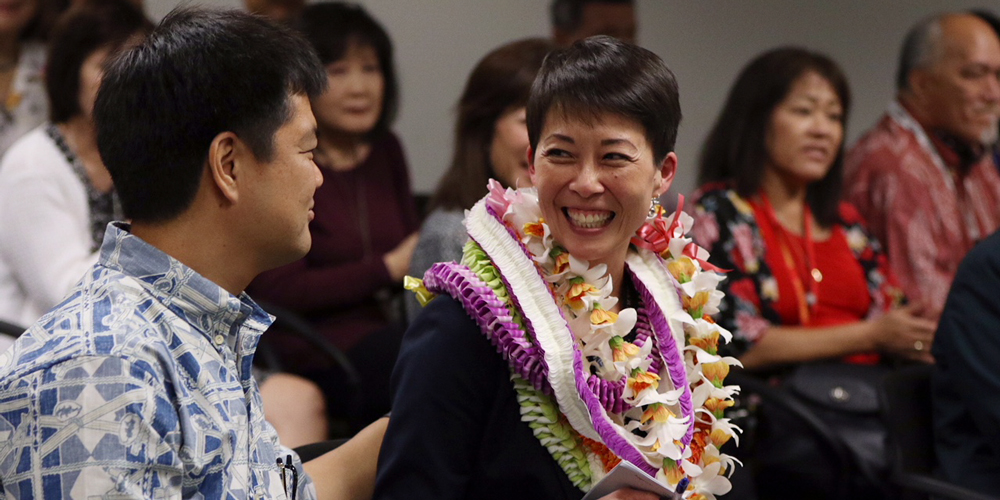
Rachael Wong works for a better future for all
For Rachael Wong, who earned her Master of Public Health (MPH) in Maternal and Child Health (MCH) at the University of Hawai‘i at Mānoa in 1997, deciding to pursue a career in public health was all about the values.
"The values and beliefs that underlie the public health code of ethics — striving for social justice, pushing for equity, collaborating, and shouldering the responsibility to act for the greater good based on the knowledge that you hold — those are the same values that motivate me to work to improve the quality of life for others," Wong says.
Today, Wong is hard at work as the founder and strategic advisor of One Shared Future, an initiative in Honolulu that received private seed funding to serve local communities through collaboration and innovation. Formerly, she was the director of the Hawai‘i Department of Human Services (DHS), and prior to that, she was the vice president and chief operating officer of the Healthcare Association of Hawai‘i (HAH).
One of her proudest accomplishments at DHS was bringing about a new approach, ‘Ohana Nui, that involves looking at whole families and multiple generations together. DHS provides people with assistance with food, housing, employment, education, and health services, and prior to Wong's leadership, the department's programs for keiki, adults, and kūpuna had been driven by separate funding streams.
Wong says her background in public health was one key to implementing this new multigenerational approach. "I brought in the public health perspective, and we reframed DHS from a safety net to a springboard," she says. "DHS transforms people and communities into a state of better well-being."
Wong's approach was the beginning of bringing the various DHS programs together in collaboration with the Hawai‘i Department of Health (DOH). Using common language and framing based on the social determinants of health created more opportunities for partnership.
"The two departments are changing the trajectory of future generations of this community," she says. "That's public health at its core."
Wong is an enduring fighter. Her deep commitment to doing what is right steered her in her decision in 2017 to file an ethics complaint against former state House Speaker Joe Souki. While Wong was the director of DHS, Souki sexually harassed her.
"Because of my public health perspective, I couldn’t not say or do something when it became clear to me that I could speak out against the workplace sexual harassment that I experienced," she says. Wong was the first public figure in Hawai‘i to become part of the #MeToo movement.
Although she faced barriers in her decision to come forward — including concerns that she would not be believed and nothing would happen — her strong belief that any abuse of power is corrosive to the entire community coupled with her population health perspective of prioritizing the greater good led her to speak out. After she filed her complaint, other women who Souki had also harassed came forward, and Souki publicly apologized and resigned.
When Wong thinks back to how she began to develop the values that led her to her career in public health, she often goes back to her own health. After being diagnosed at age 18 with a chronic autoimmune condition, she received a kidney transplant 12 years later. "It was a gift from an absolute stranger, and it made me think about what is important in life — how we love, how we are loved, and what we do with our time. This clarified to me that I want to do things that are fulfilling and be with people who are affirming."
The kidney transplant felt like a second chance and led Wong to always want to improve the quality of life for others. She says, "We are greater together."
Photo credit: Cory Lum
